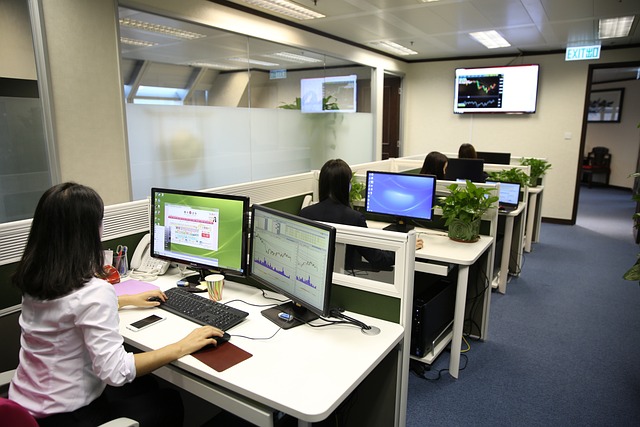Networking and Job-Hunting Strategies in France

Finding a job in France, whether as a local or an expatriate, requires a strategic approach that combines cultural understanding, professional networking, and effective job-search techniques. The French labor market is competitive, but with the right strategies, you can increase your chances of success. This guide will walk you through key networking and job-hunting strategies tailored to the French context.
1. Understanding the French Labor Market
Before diving into job hunting, it’s essential to understand how the French labor market operates:
- Work Culture:
French workplaces value formality, professionalism, and hierarchy. Building relationships and trust is crucial, especially in industries like finance, law, and engineering. - Popular Industries:
Key sectors include technology, healthcare, tourism, luxury goods, fashion, renewable energy, and education. Paris, Lyon, Toulouse, and Bordeaux are major hubs for employment opportunities. - Language Skills:
While English is widely spoken in multinational companies, proficiency in French is often required, particularly for roles outside large cities or in customer-facing positions. - Contracts:
France has two primary types of contracts: CDI (Contrat à Durée Indéterminée), which is permanent, and CDD (Contrat à Durée Déterminée), which is temporary. Many employers prefer offering CDDs initially.
2. Networking in France
Networking plays a vital role in securing jobs in France, where personal connections often open doors. Here’s how to build and leverage your network effectively:
A. Attend Professional Events
- Conferences and Trade Shows:
Participate in industry-specific events such as VivaTech (for tech professionals) or Salon du Bourget (for aerospace). These gatherings allow you to meet potential employers and peers. - Meetups and Workshops:
Platforms like Meetup.com list informal networking events in various fields. Join groups related to your expertise or interests. - Chambers of Commerce:
Organizations like the Franco-American Chamber of Commerce host networking events that connect international candidates with French businesses.
B. Utilize LinkedIn
- Optimize your LinkedIn profile by writing it in both English and French if possible. Highlight relevant skills, certifications, and achievements.
- Connect with recruiters, HR managers, and professionals in your field. Personalize connection requests to make them more meaningful.
- Engage with content posted by French companies or influencers in your industry.
C. Leverage Alumni Networks
If you studied at a university with a strong alumni presence in France, reach out to former classmates or graduates who may be working in your desired sector. Alumni associations often organize career fairs and networking sessions.
D. Join Professional Associations
Membership in organizations like AFJE (Association Française des Juristes d’Entreprise) for legal professionals or Syntec Numérique for IT specialists can help you establish credibility and access exclusive job boards.
E. Coffee Meetings (Cafés Professionnels)
In France, informal coffee meetings are common for networking. Reach out to professionals via email or LinkedIn and propose a casual meeting to discuss their career path or seek advice. Be polite and respectful of their time.
3. Crafting a Standout CV and Cover Letter
Your application materials must align with French expectations:
A. Résumé (CV)
- Keep it concise (one page for junior roles, two pages maximum for senior roles).
- Include sections for education, work experience, languages, and technical skills.
- Use reverse chronological order and avoid overly creative designs—French employers prefer clean, professional layouts.
- Mention your nationality and visa status if you’re not an EU citizen.
B. Motivation Letter (Lettre de Motivation)
This document is critical in France and should:
- Be tailored to each position and company.
- Explain why you’re interested in the role and how your skills match the job description.
- Adopt a formal tone and address the hiring manager directly (e.g., “Madame” or “Monsieur”).
C. Language Considerations
If applying to a French-speaking company, submit your CV and cover letter in French unless otherwise specified. Even for bilingual roles, demonstrating fluency in French shows respect for the culture.
4. Using Online Job Portals
Several websites cater specifically to job seekers in France:
- Pôle Emploi:
The official government job board lists openings across all sectors. It also provides resources for unemployed individuals. - Indeed.fr and Welcome to the Jungle:
Popular platforms for searching jobs in various industries. Welcome to the Jungle focuses on startups and innovative companies. - LinkedIn Jobs:
Many French companies post vacancies on LinkedIn. Set up job alerts based on your preferences. - Specialized Sites:
For niche fields, consider sites like Cadremploi (executive roles), Apec (management positions), or RegionsJob (regional opportunities).
5. Working with Recruitment Agencies
Recruitment agencies can streamline your job search by matching you with suitable positions:
- Generalist Agencies:
Adecco, Randstad, and Manpower assist with temporary and permanent placements. - Specialized Agencies:
Hays, Michael Page, and Robert Half focus on executive and specialized roles. - International Agencies:
Spring Professional and Experis cater to expats and multilingual candidates.
When working with recruiters, clearly communicate your goals, availability, and salary expectations.
6. Internships and Apprenticeships
Internships (stages ) and apprenticeships (alternances ) are excellent ways to gain experience and secure full-time employment:
- Alternance Programs:
Combining work and study, these programs are highly valued in France. They lead to qualifications while providing hands-on training. - How to Find Them:
Search on Alternance.fr or contact schools offering vocational training programs.
7. Navigating Interviews
Preparing for interviews in France involves understanding cultural nuances:
- Dress Code:
Dress conservatively and professionally. Dark suits are standard for business settings. - Behavior:
Greet interviewers with a firm handshake and use titles like “Monsieur” or “Madame.” Maintain eye contact and speak confidently. - Questions to Expect:
Be ready to answer questions about your motivation, previous experiences, and knowledge of the company. Technical assessments may also be part of the process. - Follow-Up:
Send a thank-you email after the interview, reiterating your interest in the position.
8. Legal Requirements for Non-EU Citizens
If you’re not from the European Union, ensure you have the necessary permits:
- Visa Options:
- Talent Passport Visa: For highly skilled workers, researchers, and entrepreneurs.
- Employee Visa: Sponsored by your employer.
- Work Permits:
Your employer typically handles this paperwork, but staying informed is important.
9. Cultural Tips for Success
- Politeness Matters:
Always start interactions with “Bonjour” and end with “Merci” and “Au revoir.” - Respect Hierarchies:
Decision-making in French companies tends to be top-down. Show deference to senior staff. - Emphasize Qualifications:
French employers prioritize academic credentials and certifications, so highlight these prominently.


